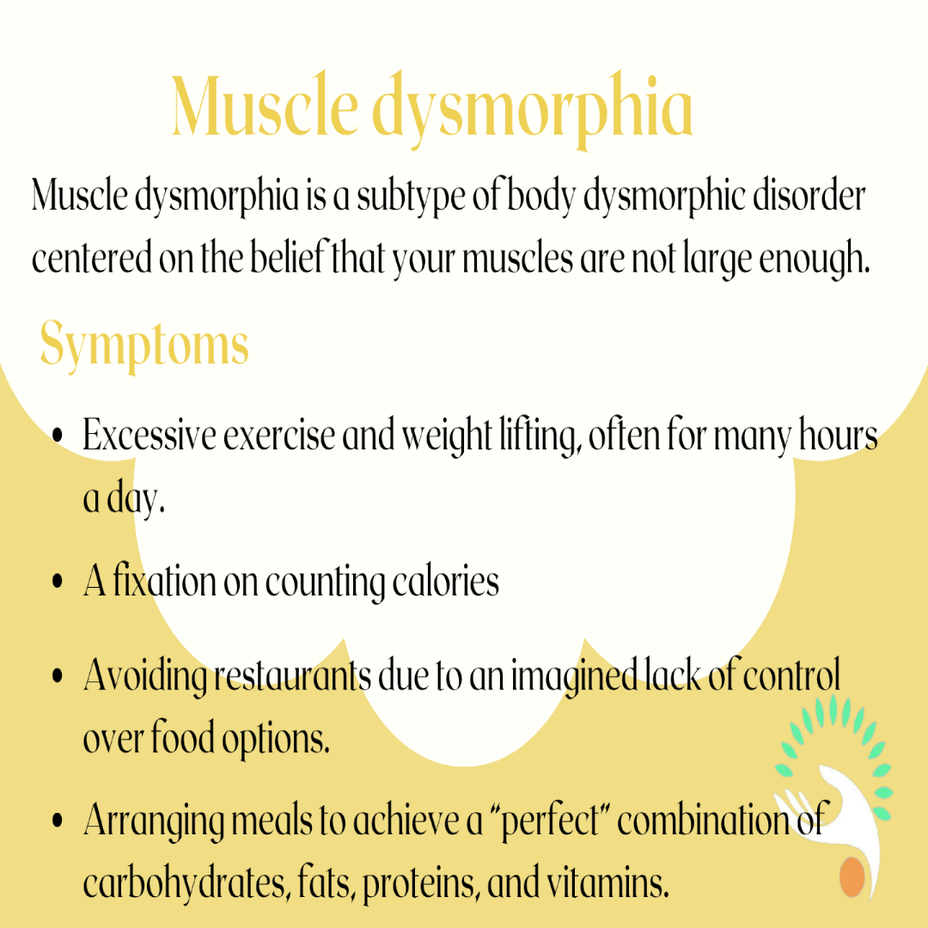#BodyDysmorphicDisorder
Muscle dysmorphia is a subtype of the obsessive mental disorder body dysmorphic disorder, but is often also grouped with eating disorders. In muscle dysmorphia, which is sometimes called "bigorexia", "megarexia", or "reverse anorexia", the delusional or exaggerated belief is that one's own body is too small, too skinny, insufficiently muscular, or insufficiently lean, although in most cases, the individual's build is normal or even exceptionally large and muscular already.
Muscle dysmorphia affects mostly men, particularly those involved in sports where body size or weight are competitive factors, becoming rationales to gain muscle or become leaner. The quest to seemingly fix one's body consumes inordinate time, attention, and resources, as on exercise routines, dietary regimens, and nutritional supplementation, while use of anabolic steroids is also common. Other body-dysmorphic preoccupations that are not muscle-dysmorphic are usually present as well.
The distress and distraction of muscle dysmorphia may provoke absences from school, work, and social settings. Compared to other body dysmorphic disorders, rates of suicide attempts are especially high with muscle dysmorphia. Researchers believe that muscle dysmorphia's incidence is rising, partly due to the recent cultural emphasis on muscular male bodies.
Signs and symptoms of body dysmorphic disorder include:
-Being extremely preoccupied with a perceived flaw in appearance that to others can't be seen or appears minor
-Strong belief that you have a defect in your appearance that makes you ugly or deformed
-Belief that others take special notice of your appearance in a negative way or mock you
-Engaging in behaviors aimed at fixing or hiding the perceived flaw that are difficult to resist or control, such as frequently checking the mirror, grooming or skin picking
-Attempting to hide perceived flaws with styling, makeup or clothes
-Constantly comparing your appearance with others
-Frequently seeking reassurance about your appearance from others
-Having perfectionist tendencies
-Seeking cosmetic procedures with little satisfaction
-Avoiding social situations
-Preoccupation with your appearance and excessive thoughts and repetitive behaviors can be unwanted, difficult to control and so time-consuming that they can cause major distress or problems in your social life, work, school or other areas of functioning.
You can refer to this:
resiliens.com/resilify/program/dealing-with-body-dysmorphia


